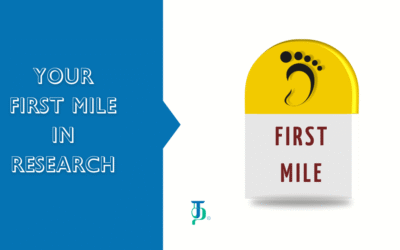Adhithya and the Curious Case of the PDFs
The campus library was unusually quiet that afternoon. Adhithya had claimed a corner table, but instead of reading, he was staring into the abyss of his laptop screen. Beside him, an untouched cappuccino cooled into resignation.
“You know,” Tholga’s voice broke the silence, “coffee works better if you actually drink it, not just glare at it.”
Adhithya groaned, shutting the lid with a thud. “I swear, these PDFs are multiplying behind my back. The more I try to read, the more I seem to have. It’s endless.”
Tholga chuckled, sliding into the chair opposite. He raised his own mug in a mock toast. “Welcome to the first-year researcher’s favourite game: drowning in literature.”
“Not funny,” Adhithya muttered. “I have all these papers, but no idea which ones matter. It’s like having a fridge full of groceries and still not knowing what to cook.”
“Ah,” Tholga said with a grin. “That’s because you think research is about hoarding PDFs. It’s not. It’s about collecting clues. You don’t need the whole library – just the parts that tell you what’s been solved, what’s still missing, and where you get to jump in.”
Adhithya rolled his eyes. “You make it sound like a detective movie.”
“Exactly!” Tholga leaned forward. “Every great research question is basically Sherlock Holmes asking, ‘What’s missing from this story?’ But to see the missing piece, you need your literature in order.”
Adhithya sighed. “And how am I supposed to do that? Every time I open Google Scholar, it feels like I’m scrolling through the world’s longest grocery receipt.”
Tholga smirked. “That’s where a little structure comes in. Not all papers deserve your energy. Some are gold, some are just… academic confetti. The trick is knowing how to tell them apart and keeping your focus on what really shapes your research.”
“And let me guess,” Adhithya said, picking up his coffee at last, “you’re about to tell me there’s a secret technique for this?”
“Not so secret,” Tholga replied. “But there is a method. The First Mile walks you through it – how to fish out the right articles, spot the key insights, and gradually turn that chaos into clarity. Without it, well…” he gestured at Adhithya’s overstuffed folder icon. “You end up right here, staring at PDFs with no clue.”
Adhithya groaned again, this time into his cup. “Don’t remind me.”
“The point,” Tholga continued, leaning back and swirling his coffee, “isn’t just organisation. A well-curated collection gives you confidence. You stop second-guessing. You see what’s been done, you notice the gaps, and suddenly your research question isn’t guesswork anymore – it’s a real puzzle you can solve.”
Adhithya tilted his head. “So, you’re saying I don’t need to read everything?”
Tholga raised a brow. “Unless you’ve cloned yourself, definitely not. What you need is a solid collection. Think of it as your personal cheat sheet – it keeps you sane, shows you the gaps, and makes sure you’re not reinventing the wheel.”
Adhithya eyed the chaos on his laptop and groaned. “Fine. So the collection isn’t just about tidying folders. It’s like… the foundation of the whole PhD house?”
“Bingo,” Tholga grinned. “Without it, you’re camping in the rain. With it, you’ve got a roof, walls, maybe even central heating. And once that foundation is set, the writing, the experiments, the whole journey becomes… manageable.”
Adhithya chuckled, finishing his cappuccino at last. “Alright, Sherlock. Next time, you bring the metaphors, I’ll bring the coffee.”
“Deal,” Tholga said, with a wink. “And maybe fewer groceries, more actual meals. Remember, building your literature collection isn’t busywork – it’s your first mile toward a confident, structured research journey. Trust me, this is where the magic starts.”











